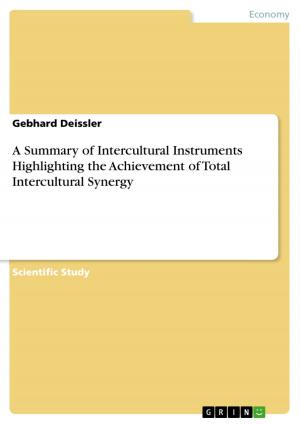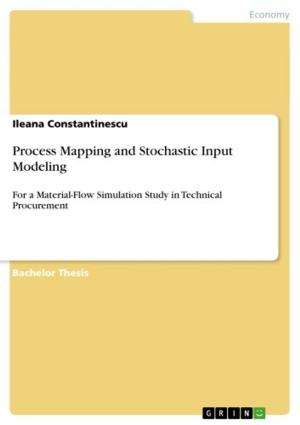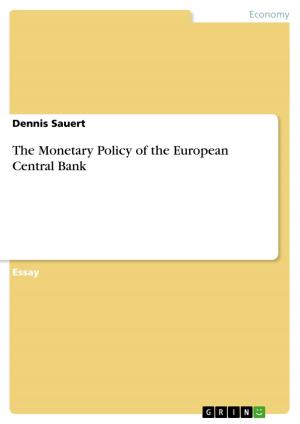When should new members from Central and Eastern Europe Join the Euro Area?
Nonfiction, Social & Cultural Studies, Political Science| Author: | Jozef Vasak | ISBN: | 9783638235181 |
| Publisher: | GRIN Publishing | Publication: | November 24, 2003 |
| Imprint: | GRIN Publishing | Language: | English |
| Author: | Jozef Vasak |
| ISBN: | 9783638235181 |
| Publisher: | GRIN Publishing |
| Publication: | November 24, 2003 |
| Imprint: | GRIN Publishing |
| Language: | English |
Thesis (M.A.) from the year 2003 in the subject Politics - International Politics - Topic: European Union, grade: 2 (B), University of Hamburg (European College, Hamburg), 56 entries in the bibliography, language: English, abstract: After a decade of transition from communist regime with centrally planned economic system to democratic society with market economy and after several years of negotiations on the European Union membership, ten candidate countries from Central and Eastern Europe signed the accession treaties at summit in Athen in April 2003. If they conduct public referenda successfully and the present members states complete the ratification, they will become members states in May 2004. The membership in the European Union implies the prospect of eventual membership in the Economic and Monetary Union. The consequent question is: when exactly should they join? According to the Maastricht Treaty, in order to become members of monetary union, new members have to fulfil the convergence criteria. As academic and policy discussions show, from the perspective of monetary policy and economic reasoning, this question, so far, has no clear answer. Politically, the majority of new members already expressed the intention to fulfil the Maastricht criteria as soon as possible and to join between 2006 and 2008. The officials of the European Union and the European Central Bank prefer a later entry date or tend to be neutral on the issue. Further popular opinion recommends waiting until the euro area consolidates its own monetary policy mechanism. Among economists, the timing of the eastern enlargement of monetary union is a controversial issue as well. Some argue the nominal convergence set by the Maastricht Treaty to be far from sufficient to form a monetary union with less developed economies. As long as the real convergence in terms of prosperity, functioning institutions or reaction of economy to economic shocks, is not achieved, a common monetary policy stays undesirable. Opposition to these arguments points out that the inclusion of peripheral members of the European Union with characteristic similar to new members, so far, had no negative effects for those countries or for the monetary union. Others oppose the eager ambition of an early accession to the euro area, because economies of candidate countries members need a different monetary policy, while catching-up the present members. They stress some of the Maastricht criteria to be contradictory to the catching-up process and advise to accept the higher inflation rates leading to real appreciation of exchange rates. [...]
Thesis (M.A.) from the year 2003 in the subject Politics - International Politics - Topic: European Union, grade: 2 (B), University of Hamburg (European College, Hamburg), 56 entries in the bibliography, language: English, abstract: After a decade of transition from communist regime with centrally planned economic system to democratic society with market economy and after several years of negotiations on the European Union membership, ten candidate countries from Central and Eastern Europe signed the accession treaties at summit in Athen in April 2003. If they conduct public referenda successfully and the present members states complete the ratification, they will become members states in May 2004. The membership in the European Union implies the prospect of eventual membership in the Economic and Monetary Union. The consequent question is: when exactly should they join? According to the Maastricht Treaty, in order to become members of monetary union, new members have to fulfil the convergence criteria. As academic and policy discussions show, from the perspective of monetary policy and economic reasoning, this question, so far, has no clear answer. Politically, the majority of new members already expressed the intention to fulfil the Maastricht criteria as soon as possible and to join between 2006 and 2008. The officials of the European Union and the European Central Bank prefer a later entry date or tend to be neutral on the issue. Further popular opinion recommends waiting until the euro area consolidates its own monetary policy mechanism. Among economists, the timing of the eastern enlargement of monetary union is a controversial issue as well. Some argue the nominal convergence set by the Maastricht Treaty to be far from sufficient to form a monetary union with less developed economies. As long as the real convergence in terms of prosperity, functioning institutions or reaction of economy to economic shocks, is not achieved, a common monetary policy stays undesirable. Opposition to these arguments points out that the inclusion of peripheral members of the European Union with characteristic similar to new members, so far, had no negative effects for those countries or for the monetary union. Others oppose the eager ambition of an early accession to the euro area, because economies of candidate countries members need a different monetary policy, while catching-up the present members. They stress some of the Maastricht criteria to be contradictory to the catching-up process and advise to accept the higher inflation rates leading to real appreciation of exchange rates. [...]















